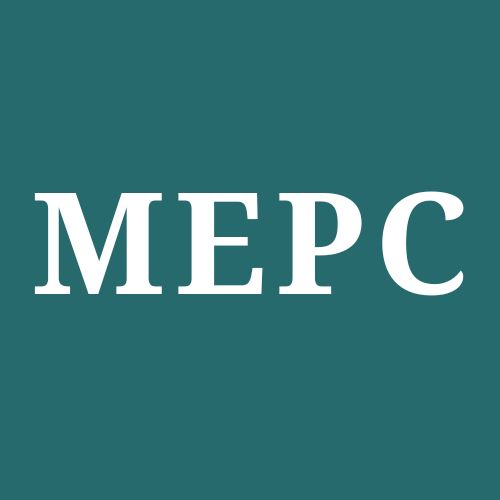Sara Godfrey
Sara is a Congressional Affairs intern at MEPC and a graduate student at Columbia University’s School of International and Public Affairs. She holds Bachelor’s degrees in Economics and International Studies and specializes in humanitarian affairs, U.S.-MENA relations, and economic policy. Sara is an advanced Arabic speaker and currently serves as the Special Rapporteur for Columbia University’s seminar on the Middle East.
The economic situation in Lebanon is dire. Since October 2019, the Lebanese pound has lost 98% of its value, pushing over 80% of the population into poverty. Inflation has soared into the triple digits, and one in five workers has become unemployed since the beginning of the crisis. Facing simultaneous banking, currency, and sovereign debt crises, the World Bank predicts that Lebanon will rank as one of the top three worst economic disasters in modern history. Tourism shocks resulting from the conflict in Gaza and fears of regional spillover have further exacerbated the situation, cutting off a critical source of foreign currency and economic activity desperately needed for recovery.
Historically, foreign currency inflows from foreign direct investment, remittances, and tourism have played a central role in the Lebanese economy. After the Lebanese Central Bank pegged its currency to the U.S. dollar in 1997, foreign currency inflows became essential for supporting the fixed exchange rate and financing government spending. Through the 2010s, a combination of economic mismanagement, corruption, and external shocks threatened this system. As a result, the Central Bank began borrowing from commercial banks to maintain the foreign reserves needed to hold the fixed exchange rate and finance its current account deficit. This unsustainable strategy unraveled in October 2019 when a proposed Whatsapp tax, seen as a symbol of government corruption, sparked widespread protests and triggered a looming economic crisis. Quickly, the fixed exchange rate collapsed, leading to rapid currency depreciation, bank runs, and a severe financial crisis.
Before the crisis, Lebanon’s tourism sector had long been a critical component of the national economy, providing employment opportunities, a source of foreign currency, and contributing to GDP. Therefore, tourism revitalization was initially pointed to as a key driver of growth that, alongside structural reforms, could aid in economic recovery. In early summer 2023, Tourism Minister Walid Nassar predicted Lebanon would welcome 2.2 million tourists, bringing in over nine billion dollars of revenue. While tourism numbers increased by 32% in the first half of 2023, Nassar’s optimism was decimated by the outbreak of war in Gaza and subsequent instability in southern Lebanon from cross-border fire exchanges between Israel and Hezbollah.
Fears of regional spillover have shaken Lebanon’s tourism sector, exacerbating an already dire economic situation. Before the outbreak of the Gaza War, the World Bank projected 0.2% economic expansion due to tourism increases for the 2023 fiscal year – the first slightly positive growth projection since 2018. Shocks after October 7 quickly reversed this trend, with more than half of reservations canceled for the 2023-24 winter tourism season. By December, the World Bank announced that Lebanon had slipped back into recession, reporting only 5.41 billion dollars in tourism revenue in 2023.
In particular, decreases in Western tourists have weighed heavily on the Lebanese economy. In May, the Lebanese Ministry of Tourism reported a 17% year-on-year decrease in European travelers visiting Lebanon in the first quarter of 2024. Summer tourism prospects are likely to continue to worsen as numerous nations, including France, the UK, the Netherlands, and Germany, have intensified their travel warnings in Lebanon, calling for their citizens to leave the country amid fears of further escalation between Hezbollah and Israel. After Israel struck southern Beirut on July 30, killing a senior member of Hezbollah and five Lebanese citizens, the United States issued a level 4 travel advisory, urging U.S. citizens to leave Lebanon while commercial flights are still available.
Geopolitical instability from the conflict in Gaza has harmed Lebanon’s economy beyond the tourism sector. In December 2023, the World Bank reported broader economic consequences resulting from military escalation on the country’s southern border, including infrastructure damage, displacement, import disruptions, and another wave of skilled workers leaving the country. As of early 2024, more than 90,000 people have been displaced in southern Lebanon since October 8, severely disrupting economic activity in the region.
The tourism sector’s vulnerability to regional instability underscores the need for more significant economic reforms in Lebanon. While the IMF reached a staff-level agreement with Lebanon in April 2022, the government has failed to meet the conditions for unlocking the proposed $3 billion aid package. These delays, in conjunction with rising regional tensions and subsequent tourism disruptions, have exacerbated Lebanon’s economic decline. The spillover effects of the Gaza War highlight the fact that Lebanon’s volatile tourism sector cannot serve as the foundation for economic recovery. Therefore, to achieve long-term economic recovery, Lebanon must continue to work with the IMF and prioritize monetary, fiscal, and banking reforms that are conducive to sustainable growth.
